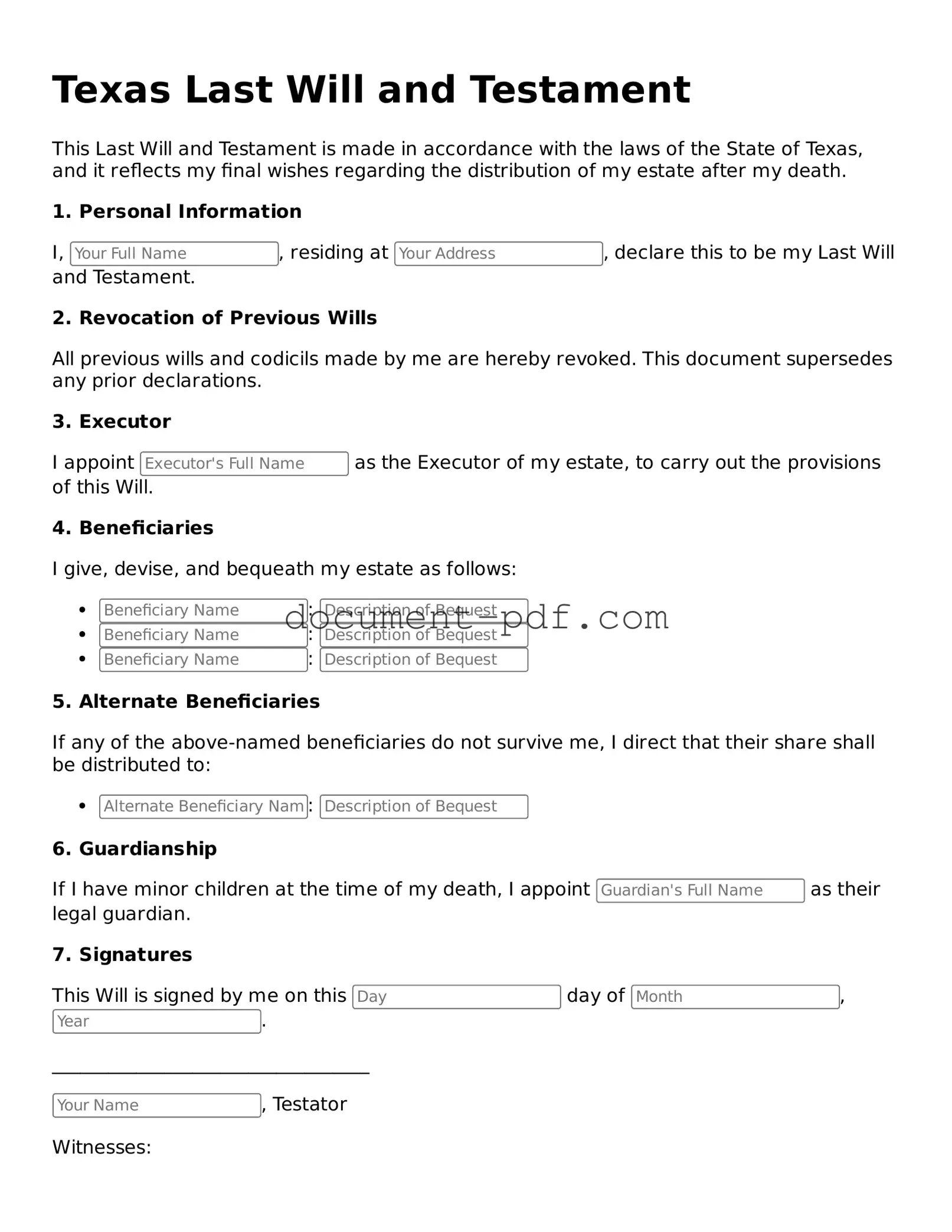Attorney-Verified Texas Last Will and Testament Template
A Texas Last Will and Testament form is a legal document that outlines how a person wishes to distribute their assets after their death. This essential tool ensures that your final wishes are honored and provides clarity for your loved ones during a difficult time. Ready to take the next step in securing your legacy? Fill out the form by clicking the button below.
Access Last Will and Testament Editor Here

Attorney-Verified Texas Last Will and Testament Template
Access Last Will and Testament Editor Here
Finish the form without slowing down
Edit your Last Will and Testament online and download the finished file.
Access Last Will and Testament Editor Here
or
Click for PDF Form
